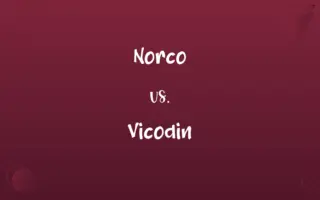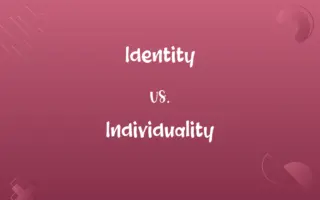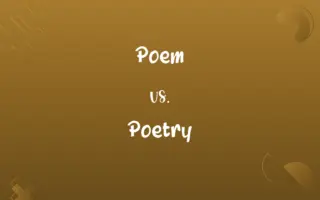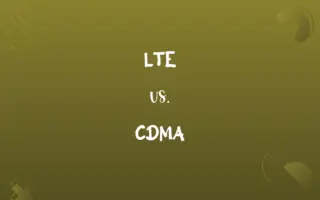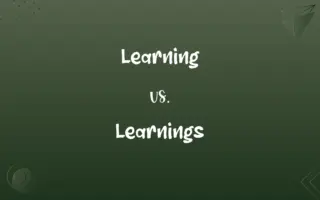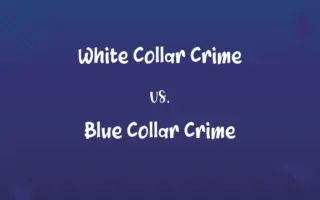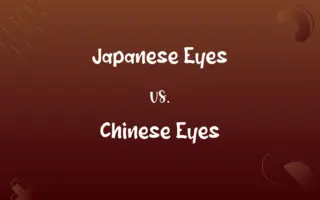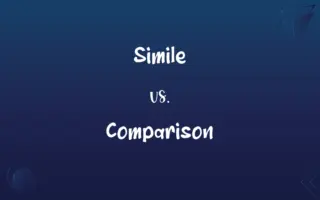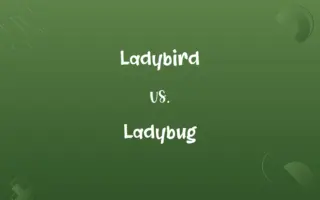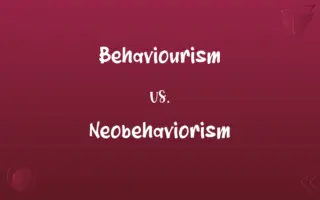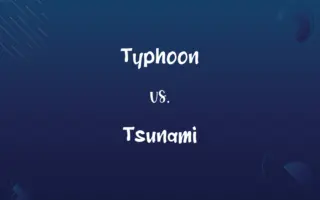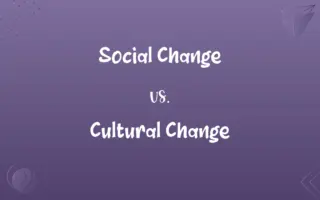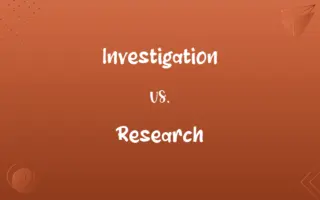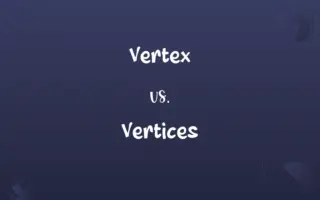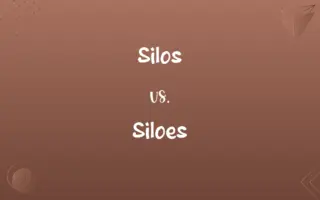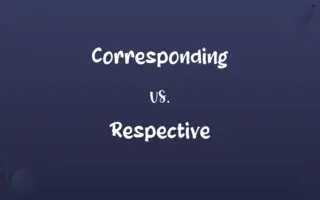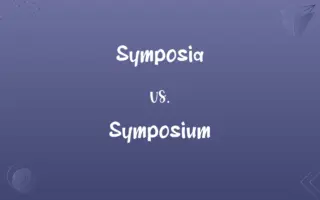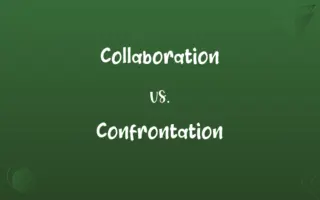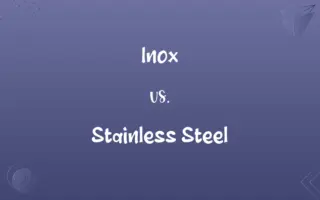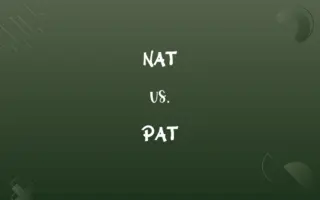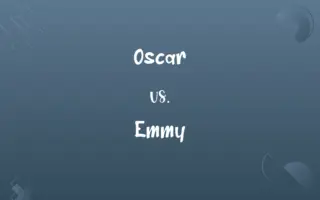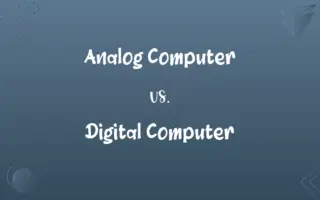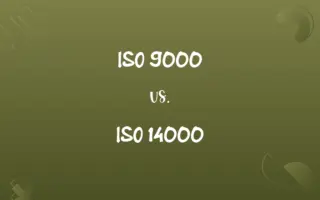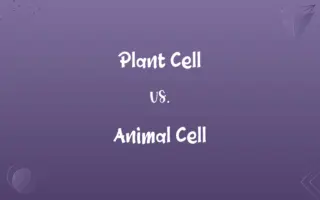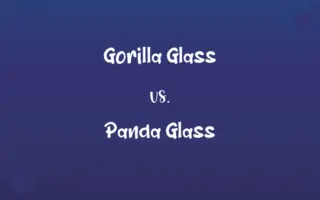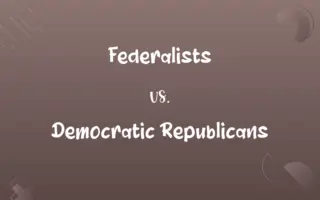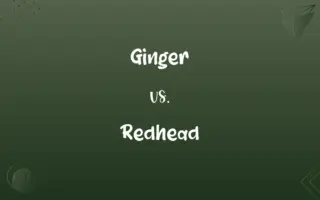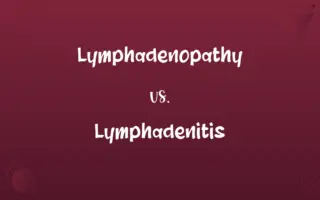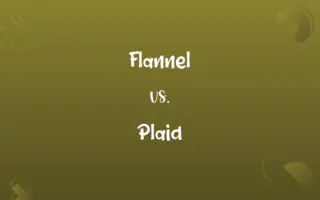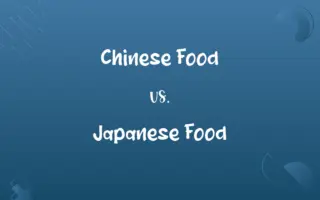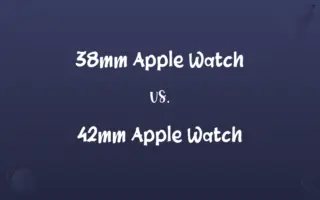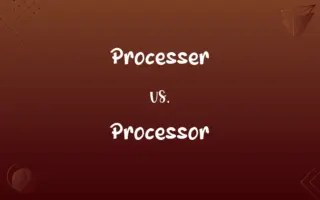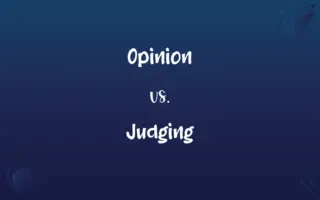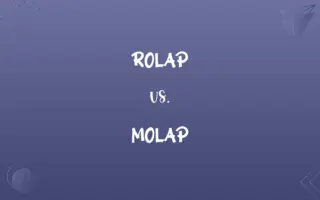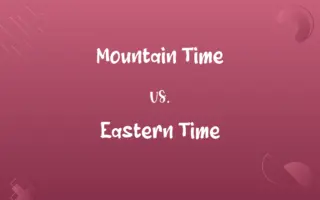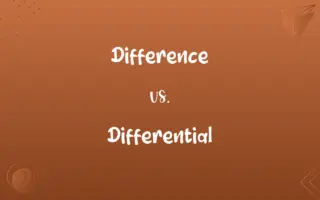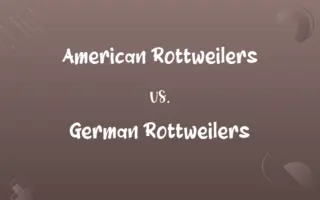Hypothesis vs. Theory: Know the Difference

By Shumaila Saeed || Updated on December 25, 2023
A hypothesis is a proposed explanation for a phenomenon, not yet tested or verified, while a theory is a well-substantiated explanation of some aspect of the natural world, based on a body of evidence.
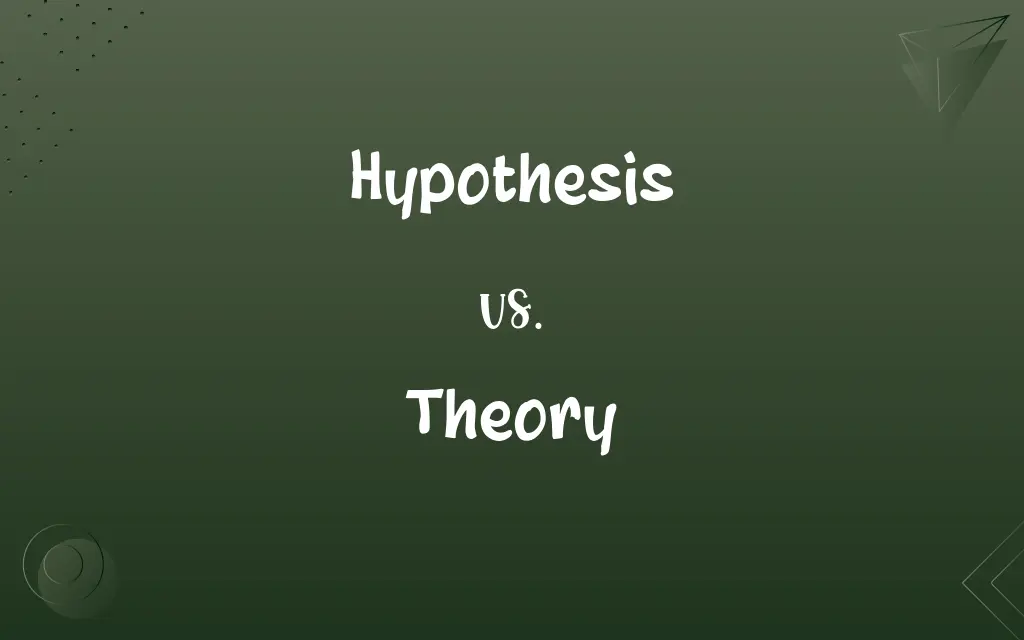
Key Differences
A hypothesis is an initial, testable assumption or prediction about a phenomenon, forming the starting point for investigation. On the other hand, a theory is a well-substantiated explanation of some aspect of the natural world, based on a body of evidence that has been repeatedly confirmed through observation and experimentation.
Shumaila Saeed
Nov 14, 2023
A hypothesis is developed as a tentative explanation, often formulated as a statement that can be tested by scientific research. In contrast, a theory is the result of tested and confirmed hypotheses and is supported by a significant body of evidence, demonstrating broader applicability and understanding of a phenomenon.
Shumaila Saeed
Nov 14, 2023
Hypotheses are specific and narrow in scope, designed to be tested through experiments or observations. Theories, however, have a broader scope, integrating and generalizing multiple hypotheses and experimental results, and are used to explain and predict a wide range of related phenomena.
Shumaila Saeed
Nov 14, 2023
A hypothesis represents an early stage in the process of scientific inquiry, subject to validation or refutation through testing. A theory, however, stands as a more mature stage in scientific understanding, having undergone extensive testing and refinement, and is generally accepted as a valid explanation by the scientific community.
Shumaila Saeed
Nov 14, 2023
While a hypothesis is an educated guess and subject to change or abandonment if disproven by evidence, a theory is a well-established principle that has been developed over time and is backed by strong evidence, enjoying a high level of acceptance within the scientific community.
Shumaila Saeed
Nov 14, 2023
ADVERTISEMENT
Comparison Chart
Definition
A tentative explanation proposed for investigation
A substantiated explanation based on evidence
Shumaila Saeed
Nov 14, 2023
Stage in Research
Initial, exploratory stage
Advanced stage, after extensive testing
Shumaila Saeed
Nov 14, 2023
Evidence Requirement
Limited or no evidence required initially
Requires a substantial body of supporting evidence
Shumaila Saeed
Nov 14, 2023
Certainty Level
Uncertain until tested
High level of certainty and acceptance
Shumaila Saeed
Nov 14, 2023
Function
To be tested through experiments or observations
To explain and predict phenomena
Shumaila Saeed
Nov 14, 2023
ADVERTISEMENT
Hypothesis and Theory Definitions
Hypothesis
A proposed explanation for an observation or phenomenon.
Her hypothesis was that increased sunlight would accelerate plant growth.
Shumaila Saeed
Nov 11, 2023
Theory
A coherent group of tested general propositions, regarded as correct.
Einstein's theory of relativity revolutionized physics.
Shumaila Saeed
Nov 11, 2023
Hypothesis
A provisional idea whose merit requires evaluation.
He formulated a hypothesis about the relationship between diet and disease.
Shumaila Saeed
Nov 11, 2023
Theory
A hypothesis or group of hypotheses that have been verified by significant evidence.
The germ theory of disease is well-established in medicine.
Shumaila Saeed
Nov 11, 2023
Hypothesis
A tentative suggestion intended to explain certain facts or observations.
The scientist's hypothesis was that the substance was water-soluble.
Shumaila Saeed
Nov 11, 2023
ADVERTISEMENT
Theory
A well-substantiated explanation acquired through the scientific method.
The theory of evolution by natural selection is a fundamental concept in biology.
Shumaila Saeed
Nov 11, 2023
Hypothesis
An assumption or conjecture put forward to test its logical or empirical consequences.
The hypothesis that stress affects health was tested in a recent study.
Shumaila Saeed
Nov 11, 2023
Theory
A set of principles on which the practice of an activity is based.
Music theory involves understanding scales, chords, and rhythms.
Shumaila Saeed
Nov 11, 2023
Hypothesis
An educated guess based on some prior knowledge.
Her hypothesis about the ancient civilization was based on archeological findings.
Shumaila Saeed
Nov 11, 2023
Theory
A set of statements or principles devised to explain a group of facts or phenomena, especially one that has been repeatedly tested or is widely accepted and can be used to make predictions about natural phenomena.
Shumaila Saeed
Oct 19, 2023
Hypothesis
A tentative explanation for an observation, phenomenon, or scientific problem that can be tested by further investigation.
Shumaila Saeed
Oct 19, 2023
Theory
The branch of a science or art consisting of its explanatory statements, accepted principles, and methods of analysis, as opposed to practice
A fine musician who had never studied theory.
Shumaila Saeed
Oct 19, 2023
Hypothesis
Something taken to be true for the purpose of argument or investigation; an assumption.
Shumaila Saeed
Oct 19, 2023
Theory
A set of theorems that constitute a systematic view of a branch of mathematics.
Shumaila Saeed
Oct 19, 2023
Theory
Abstract reasoning; speculation
A decision based on experience rather than theory.
Shumaila Saeed
Oct 19, 2023
Hypothesis
(sciences) Used loosely, a tentative conjecture explaining an observation, phenomenon or scientific problem that can be tested by further observation, investigation and/or experimentation. As a scientific term of art, see the attached quotation. Compare to theory, and quotation given there.
Shumaila Saeed
Oct 19, 2023
Theory
A belief or principle that guides action or assists comprehension or judgment
Staked out the house on the theory that criminals usually return to the scene of the crime.
Shumaila Saeed
Oct 19, 2023
Hypothesis
(general) An assumption taken to be true for the purpose of argument or investigation.
Shumaila Saeed
Oct 19, 2023
Theory
An assumption based on limited information or knowledge; a conjecture.
Shumaila Saeed
Oct 19, 2023
Theory
A description of an event or system that is considered to be accurate.
Shumaila Saeed
Oct 19, 2023
Hypothesis
A supposition; a proposition or principle which is supposed or taken for granted, in order to draw a conclusion or inference for proof of the point in question; something not proved, but assumed for the purpose of argument, or to account for a fact or an occurrence; as, the hypothesis that head winds detain an overdue steamer.
An hypothesis being a mere supposition, there are no other limits to hypotheses than those of the human imagination.
Shumaila Saeed
Oct 19, 2023
Theory
(sciences) A coherent statement or set of ideas that explains observed facts or phenomena and correctly predicts new facts or phenomena not previously observed, or which sets out the laws and principles of something known or observed; a hypothesis confirmed by observation, experiment etc.
Shumaila Saeed
Oct 19, 2023
Hypothesis
A tentative theory or supposition provisionally adopted to explain certain facts, and to guide in the investigation of others; hence, frequently called a working hypothesis.
Shumaila Saeed
Oct 19, 2023
Theory
(uncountable) The underlying principles or methods of a given technical skill, art etc., as opposed to its practice.
Shumaila Saeed
Oct 19, 2023
Theory
(mathematics) A field of study attempting to exhaustively describe a particular class of constructs.
Knot theory classifies the mappings of a circle into 3-space.
Shumaila Saeed
Oct 19, 2023
Hypothesis
A tentative theory about the natural world; a concept that is not yet verified but that if true would explain certain facts or phenomena;
A scientific hypothesis that survives experimental testing becomes a scientific theory
He proposed a fresh theory of alkalis that later was accepted in chemical practices
Shumaila Saeed
Oct 19, 2023
Theory
A set of axioms together with all statements derivable from them; or, a set of statements which are deductively closed. Equivalently, a formal language plus a set of axioms (from which can then be derived theorems). The statements may be required to all be bound (i.e., to have no free variables).
A theory is consistent if it has a model.
Shumaila Saeed
Oct 19, 2023
Theory
A doctrine, or scheme of things, which terminates in speculation or contemplation, without a view to practice; hypothesis; speculation.
Shumaila Saeed
Oct 19, 2023
Theory
An exposition of the general or abstract principles of any science; as, the theory of music.
Shumaila Saeed
Oct 19, 2023
Theory
The science, as distinguished from the art; as, the theory and practice of medicine.
Shumaila Saeed
Oct 19, 2023
Theory
The philosophical explanation of phenomena, either physical or moral; as, Lavoisier's theory of combustion; Adam Smith's theory of moral sentiments.
Shumaila Saeed
Oct 19, 2023
Theory
A well-substantiated explanation of some aspect of the natural world; an organized system of accepted knowledge that applies in a variety of circumstances to explain a specific set of phenomena;
Theories can incorporate facts and laws and tested hypotheses
True in fact and theory
Shumaila Saeed
Oct 19, 2023
Theory
A tentative theory about the natural world; a concept that is not yet verified but that if true would explain certain facts or phenomena;
A scientific hypothesis that survives experimental testing becomes a scientific theory
He proposed a fresh theory of alkalis that later was accepted in chemical practices
Shumaila Saeed
Oct 19, 2023
Theory
A belief that can guide behavior;
The architect has a theory that more is less
They killed him on the theory that dead men tell no tales
Shumaila Saeed
Oct 19, 2023
Theory
A concept supported by a considerable amount of evidence.
Plate tectonics is a theory explaining the movement of Earth's lithosphere.
Shumaila Saeed
Nov 11, 2023
Repeatedly Asked Queries
Can a theory be proven?
In science, theories are not "proven" but supported by evidence.
Shumaila Saeed
Nov 14, 2023
What is a hypothesis?
A proposed explanation for a phenomenon, based on limited evidence.
Shumaila Saeed
Nov 14, 2023
Is a hypothesis always true?
No, it's a tentative explanation and may or may not be true.
Shumaila Saeed
Nov 14, 2023
Can a theory be disproved?
Yes, if new evidence contradicts the existing theory.
Shumaila Saeed
Nov 14, 2023
What is an example of a hypothesis?
A hypothesis might be that a certain diet can reduce disease risk.
Shumaila Saeed
Nov 14, 2023
What is a theory?
A well-substantiated explanation of an aspect of the natural world.
Shumaila Saeed
Nov 14, 2023
Are theories subject to change?
Yes, with new evidence or understanding, theories can evolve.
Shumaila Saeed
Nov 14, 2023
Can a hypothesis be used in non-scientific contexts?
Yes, it's used in any context requiring an explanation to be tested.
Shumaila Saeed
Nov 14, 2023
What is an example of a theory?
The theory of gravity explains why objects fall towards the earth.
Shumaila Saeed
Nov 14, 2023
How does a hypothesis become a theory?
Through repeated testing and validation by evidence.
Shumaila Saeed
Nov 14, 2023
Is a theory the same as a law?
No, a law describes an observed phenomenon, while a theory explains why it happens.
Shumaila Saeed
Nov 14, 2023
What role does observation play in forming a hypothesis?
Observations often lead to the formulation of a hypothesis.
Shumaila Saeed
Nov 14, 2023
Is it possible to have a theory without a hypothesis?
Typically, a hypothesis precedes a theory as part of the scientific method.
Shumaila Saeed
Nov 14, 2023
How do hypotheses and theories contribute to scientific knowledge?
They are fundamental in expanding and refining scientific understanding.
Shumaila Saeed
Nov 14, 2023
Do all hypotheses become theories?
No, only those substantiated by extensive evidence become theories.
Shumaila Saeed
Nov 14, 2023
Can there be multiple hypotheses for one phenomenon?
Yes, multiple hypotheses can be proposed and tested.
Shumaila Saeed
Nov 14, 2023
What happens if a hypothesis is disproved?
It is modified or discarded in favor of a new hypothesis.
Shumaila Saeed
Nov 14, 2023
Is a hypothesis necessary for scientific research?
Yes, it provides a starting point for investigation.
Shumaila Saeed
Nov 14, 2023
What makes a theory strong?
Consistent evidence and the ability to make accurate predictions.
Shumaila Saeed
Nov 14, 2023
Share this page
Link for your blog / website
HTML
Link to share via messenger
About Author
Written by
Shumaila SaeedShumaila Saeed, an expert content creator with 6 years of experience, specializes in distilling complex topics into easily digestible comparisons, shining a light on the nuances that both inform and educate readers with clarity and accuracy.
